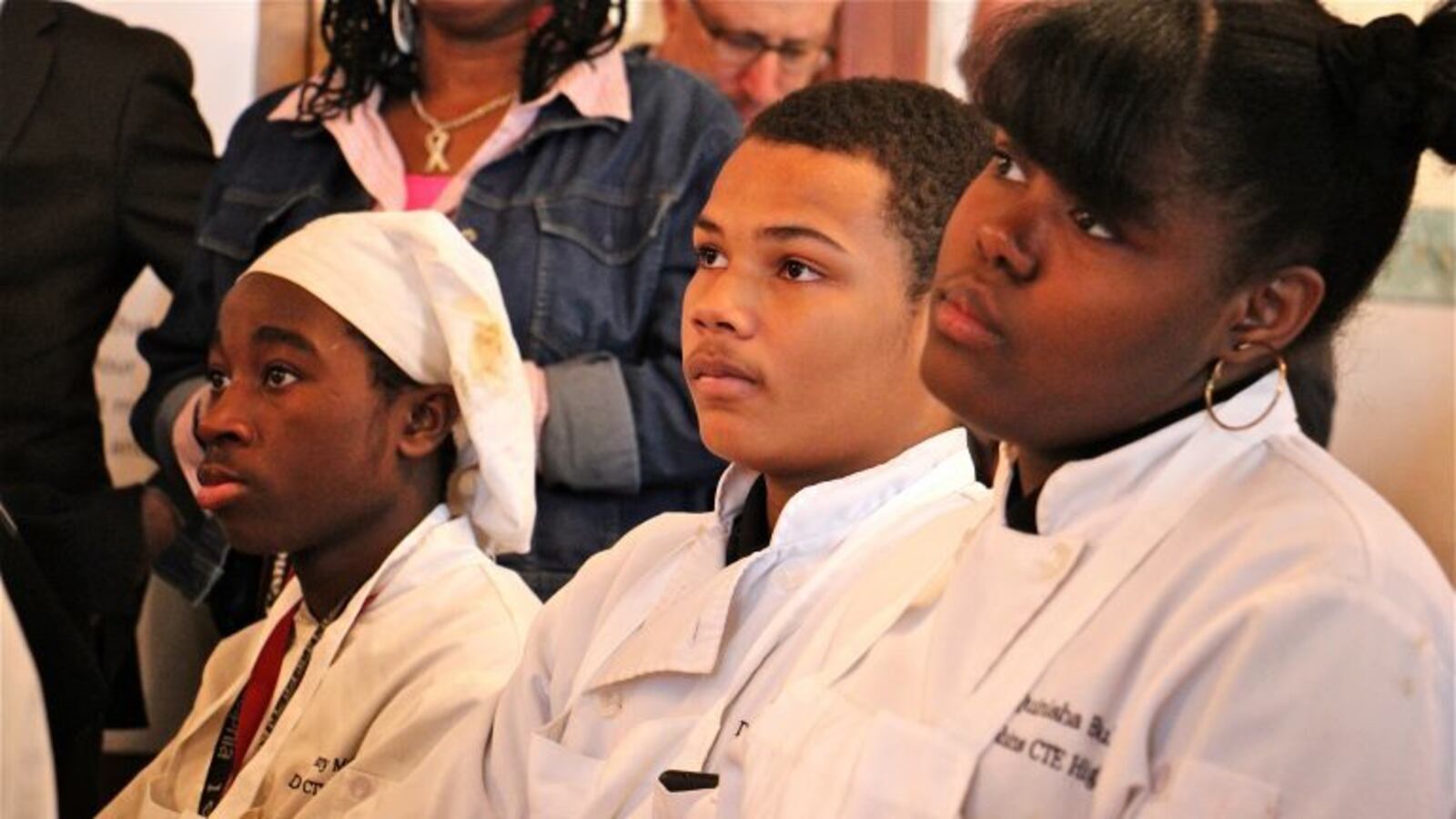This article was originally published in The Notebook. In August 2020, The Notebook became Chalkbeat Philadelphia.
For decades, Philadelphia’s Career and Technical Education (CTE) High Schools have been among the city’s most desirable, attracting motivated students from every neighborhood.
And for years, they’ve been able to cull their students, discarding applicants with poor grades, poor attendance, or even just a poor interview.
All of that, however, is about to change.
Starting with this year’s eighth graders, the school district of Philadelphia’s four CTE high schools — Murrell Dobbins, Swenson Arts and Technology, A. Philip Randolph, and Jules E. Mastbaum — will admit students via lottery. There will no longer be any admissions criteria other than students showing interest.
If there are too many students for the number of seats available, high achievers will have no advantage over those who struggled in lower grades.
District leadership says the move is about fairness. By shedding admissions criteria, officials say, these schools can serve all interested students, rather than casting aside those who may have tripped up in seventh or eighth grade.
“This is all about creating access for children and making sure that regardless of where children live they have access to some of our more successful programs,” said superintendent Dr. William Hite. “There’s a lot of interest in CTE. We have children on a wait list, we have CTE programs that are not filled.”
But critics believe the shift threatens the vitality and quality of successful schools, essentially turning them into new versions of the come-one-come-all neighborhood high schools that many consider the city’s worst.
Alumni unite
“It would change the whole tone of the school,” said Connie Little, a 1965 Dobbins grad. “It’s like the want to make it a neighborhood school. [Dobbins] is not a neighborhood school.”
Little, a long-time aide to former Mayor John Street, and other Dobbins alum are vowing to fight the change.
“When we go to a fight, we come prepared,” Little said. “And we’re prepared to win.”
What seems, at surface, a technical question about high school admissions policies is actually a referendum on equity and excellence in a school district struggling to balance the two.
Earlier this year, the Pew Charitable Trusts published a report on Philadelphia’s free-wheeling high school choice system, where students can pick among special admissions schools such as Central and Masterman, citywide admissions schools such as Dobbins, and neighborhood high schools.
Each school has its own criteria, and this complicated setup systematically disadvantages certain students, Pew found. In particular, Latino students whose credentials qualified them for top schools tend not to even apply. And the city’s most selective, academically focused schools are disproportionately white and Asian.
The city’s four CTE schools — which were designed to focus on vocational training — accept applicants from all over the city, but have a lower academic bar than special admissions schools. At Dobbins, for instance, applicants must have A’s, B’s, or C’s, no more than 10 latenesses, and no negative disciplinary reports on their most recent final report card. Applicants also must submit to an interview before hearing whether they’ve been accepted.
In 2015, the year of the Pew study, Dobbins received 1,601 applications and accepted 687 students. Other CTE schools also rejected hundreds of applicants. Among citywide admissions schools, Philadelphia’s CTE high schools received some of the highest numbers of total applications. And no citywide admissions school rejects more students than Swenson Arts and Technology.
SCHOOL # APPLICATIONS # ACCEPTED ACCEPTANCE RATE
Murrell Dobbins 1601 687 42.9%
Swenson 2533 857 33.8%
Randolph 1055 621 58.9%
Mastbaum 1282 798 62.2%
District officials want to open the doors wider, by both adding seats at CTE schools and shedding the admissions criteria that, they believe, bar too many motivated students from entry.
“Interest is the criteria,” said Hite. “If children are interested in pursuing cosmetology or building trades or culinary arts…I want the children in those programs.”
The superintendent said it’s nonsensical to take children with multiple absences and turn them away from a program that interests them. Rather, the district should be pursuing policies to engage those kids who aren’t lit up by the standard curriculum.
But where district brass see expanded opportunity, Dobbins alum see the continued dilution of a school that was once a bastion of black excellence in long-suffering North Philadelphia.


